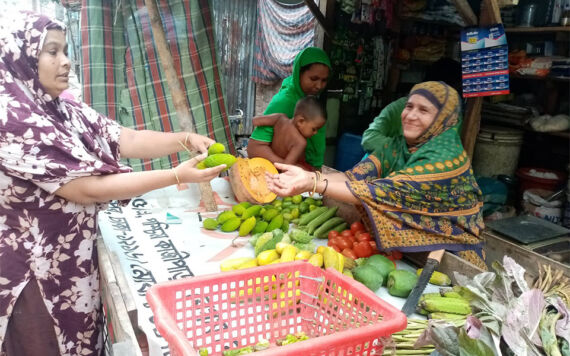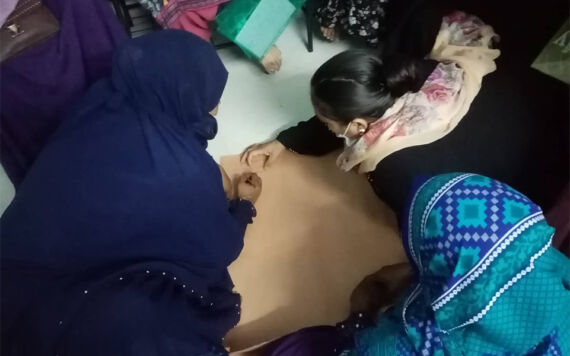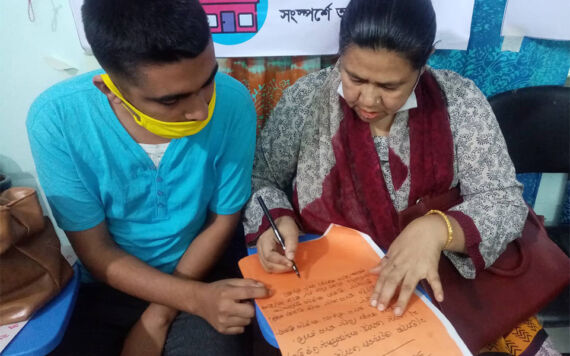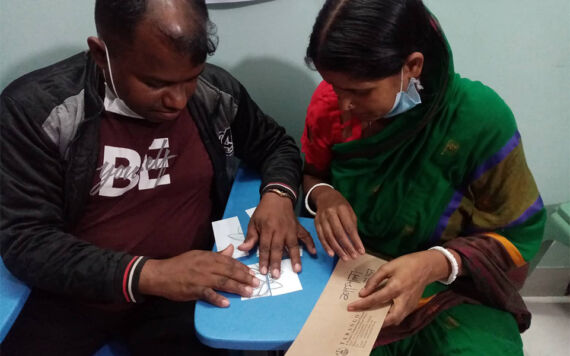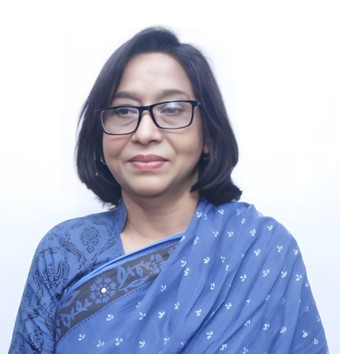| Project Name | Strengthening Sustainable Livelihood for Dhaka Slum People during COVID-19 Pandemic in Bangladesh |
| Commisioned by | Federal Ministry for Economic Cooperation and Development (BMZ) |
| Country | Bangladesh |
| Implementing Organisation | TARANGO – tarango.org |
| Duration | November 2021 – April 2023 |
The Challenge
Economic Tensions: The COVID-19 pandemic sparked an economic and social crisis in Bangladesh. The International Labour Organization (ILO) predicted 5 million job losses in rural and urban areas due to the ongoing pandemic. People working in the informal sector were particularly affected by unemployment, lack of income, depleted savings and debt. According to the ILO, 87 % of the Bangladeshi workforce is employed in the informal sector and thus at risk of losing or having lost their livelihoods.
Increased Domestic Violence: These pressing economic tensions, as well as the restrictions imposed by the pandemic, have increased violence within families. In 2020, incidents of domestic violence increased by 30 %, according to the Dhaka city corporation. In addition to the development of a databank and rigourous legal prosecution, the Ministry of Women’s and Children’s affairs considers mass awareness-raising to be an effective tool against gender-based violence.
The Objective
The project aims at increasing income sources for people living below the poverty line. The combination of family development plans with tailored capacity building and job placement offers economic opportunities for people most affected by the pandemic. Simultaneously, the project helps to reduce domestic violence and mitigate the COVID-19 pandemic through awareness-raising and education trainings.
The Target Group
The project targets vulnerable families below the poverty line, living in the greater Mirpur slum or semi slum area in Dhaka and who are interested in strengthening their livelihoods.
Priority is given to people who are affected both economically and socially by unemployment.
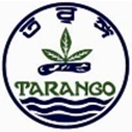
About TARANGO
TARANGO is a non-profit women’s development organization which aims at supporting the most vulnerable and establishing a poverty-free and just society through the empowerment of women in Bangladesh.
TARANGO’s mission is to specifically, but not exclusively, train women to promote entrepreneurship and leadership, fostering sustainable economic activities within a self-reliant, gender-equitable society.
Website: tarango.org
The Approach
The project applies a three-step approach to improve the livelihoods of selected families and increase their income by at least 20 %.
Familiy Development Plans: Individual family development plans are prepared and analysed to identify economical resources and potentials among family members. From each family, the member with the highest potential to be successful is selected for training, with preference given to women.
Tailored Capacity Building: The participants take part in a self-employment training to open micro-businesses and are linked to the TARANGO microfinance programn afterwards. Alternatively, they attend a skills training to successfully enter the labour market.
COVID-19 and Domestic Violence Prevention: All partici-pants attend an additional training which focuses on the prevention of a COVID-19 infection. Additionally, the training informs about gender-based violence and supports its mitigation by raising awareness and informing about pre-vention strategies.
Achieved Results
- Individual development plans for 350 families were created and analysed
- 59 participants were trained and started or restarted their own micro-enterprises
- 250 participants received skills training and were linked to job providers
- 700 participants from 350 families were trained in COVID-19 and domestic violence prevention
Zeba Parvin
Project Coordinator
TARANGO
In the context of sustainable development, what do you consider the greatest challenge that you help to overcome in your country? What is special about your project and approach, with regard to the context in which it is located?
Gender discrimination is a significant challenge in Bangladesh. Women, in particular, face numerous forms of discrimination and inequality. TARANGO focuses on fighting gender discrimination in Bangladesh. This project has worked with 350 families from the slum area. The project worked on family analysis, Covid-19 and gender awareness, skill training, job placement, micro business training, and initial investment support. After the micro business training and investment support many beneficiaries are doing business, many are having a jobs and contribute to their family income. The level of women‘s confidence has also increased through the participation in economic activities. Consequently, the inequality between men and women decreasing in those households.
Let’s get specific: What was your most significant project success? What was especially important/notable? What are you particularly proud of having achieved?
The most significant project success is the creating of informal “Committees for Prevention of Violence against Women”, which consisting of 5 to 10 female members. Every slum in our project areas has a committee. If any kind of violence against women occurs in the area, the committee tries to prevent. The committee has a “information bank“. There are various help line phone numbers of local municipal councillors, police and many more information. The committee uses it to prevent violence. As a result of having the committee, the male of those areas are more aware of this issue and have started to understand that women abuse is a crime. Also, beneficiaries are getting higher salary as they are skilled compared to unskilled labors in the market. This is another success.
What have you learned and what experiences would you like to share with like-minded actors/practitioners?
I gain lots of experience working with this project. One of them is the “project sustainability approach”. Normally, there is no relationship between the beneficiaries and the implementing organization after the completion of the project. However, this project has a sustainability system that is the micro finance group associated with the organization. The group is a bridge between the organization TARANGO and the beneficiaries of this project. Every beneficiary of this project is affiliated with respective groups. The field officer meets the group regularly. The group does not only deal with savings and loans but it also raises awareness for different issues.


